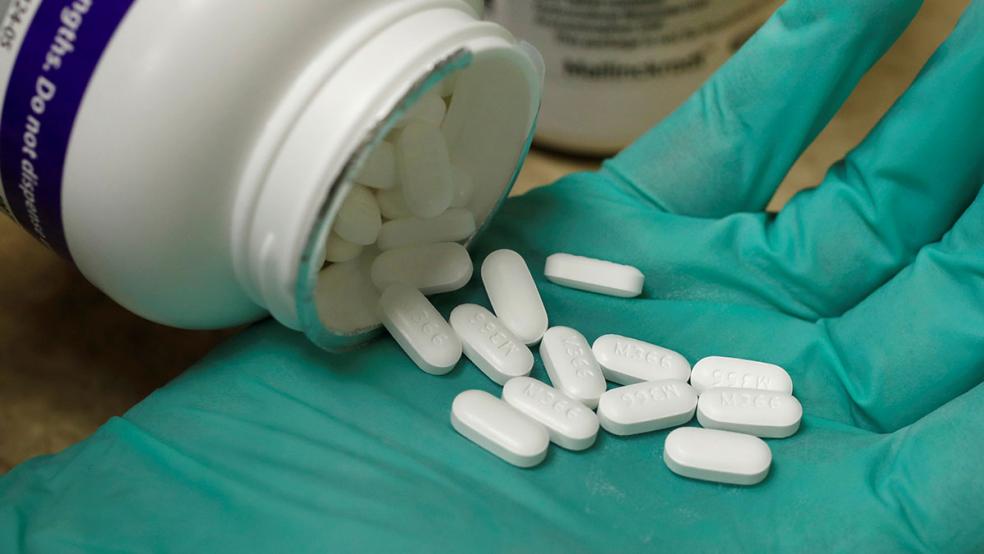President Trump’s newly unveiled test plan to lower Medicare Part B drug costs may have limited resonance in the days before the midterm elections — and could face a difficult, if not impossible, road over the longer-term as well, given resistance from the pharmaceutical industry and doctors as well as some conservatives worried that the plan runs counter to their free-market principles and some Democrats who say the plan doesn’t go far enough.
“Although the effort put into addressing drug pricing by the Trump administration is impressive, the solutions proposed Thursday face insurmountable challenges,” Walid F. Gellad, director of the Center for Pharmaceutical Policy and Prescribing at the University of Pittsburgh, writes at STAT. “I worry that the plan will meet the same (ruinous) fate as prior proposals to change how we pay for drugs in Medicare Part B.”
The plan: The proposal calls for Medicare to test benchmarking prices for certain drugs — those administered by doctors or in hospital settings — against an index of prices from other advanced countries like France and Germany. The administration is also calling for more private sector negotiations between vendors and drugmakers and payment changes that it says will cut incentives for doctors to prescribe costlier drugs.
The immediate impact: The announcement may be politically beneficial, sending voters a message just before the midterm elections that the Trump administration recognizes their concerns about drug prices and is taking action to bring them down. But the upside is probably limited. “Early indications are that it won’t be an immediate game changer — it’s too wonky for Republicans playing defense in local races, it gave Democrats a fresh opportunity to slam the administration‘s attacks on patient protections and it won’t help most voters pay less for prescriptions at local pharmacies,” Politico’s Dan Diamond writes, adding that “Trump’s sweeping proposal mostly landed with a thud in Washington and on the campaign trail. The handful of Republicans to release statements issued mild remarks saying only they would take a look at it.”
The longer-term challenges: Trump’s proposals don’t directly affect the cost of medications patients pick up from pharmacies, and they won’t immediately reduce the price of those drugs they do cover. Politico’s Sarah Karlin-Smith explains: “The demonstration project, which likely couldn’t start until at least 2020 under the government’s rulemaking process, would impact just half of the country, though the administration hasn’t laid out where, and would take five years to fully scale up and realize most of the projected savings.”
Even before that, the plan faces a host of obstacles. First, there really isn’t a concrete plan yet — just a proposal that is already raising plenty of questions. And the political opposition is likely to be significant. The proposal is notable for its emphasis on price setting — an approach that runs counter to traditional Republican ideology and that’s already raising cries of “socialized” medicine. “This is setting the rates based upon international standards," Gerard Anderson, a health policy professor at Johns Hopkins University, told CNN. "It couldn't be more anti-Republican."
The University of Pittsburgh’s Gellad adds that, “by taking aim at revenue for physicians and pharmaceutical manufacturers, the administration will cause doctors and industry to join at the hip to oppose whatever might be proposed.”
The Trump administration also wants to use the Center for Medicare & Medicaid Innovation, initiated under Obamacare, to run its test, but Republican lawmakers and industry lobbyists successfully blocked the Obama administration from using the same program to test a more modest Medicare drug plan.
The bottom line: “The Trump team will have to tackle political, legal and administrative obstacles, all while keeping voters enthused about a wonky plan that’s limited to one segment of the Medicare program. Any rewards likely won’t materialize for years,” Politico’s Sarah Karlin-Smith says. For Americans eager to see the prices of their prescriptions drop, Gellad offers some bad news: “This plan is not structured to make any dent in affordability for patients any time soon.”





